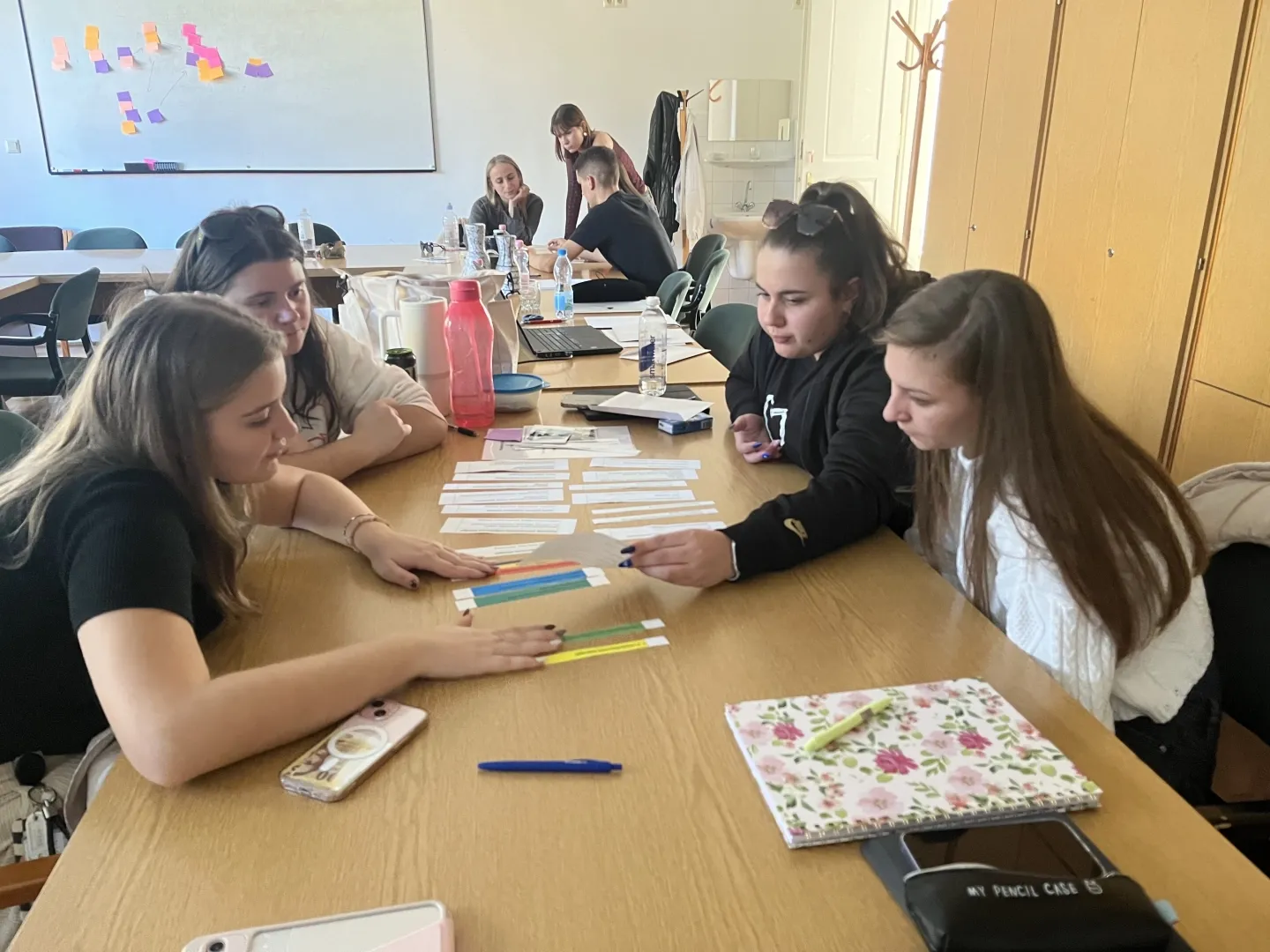Effective and Popular Project-Based Practical Programme at SZE
This academic year, Széchenyi István University launched the Student Project Support Programme, in the framework of which around 250 students took part in extra-curricular practical projects during the first semester. Experience from 12 degree programmes indicates that students find the initiative valuable.
The aim of the initiative, which was launched by Széchenyi István University in September 2024, is to provide practice-oriented education, familiarise students with the corporate sector, and prepare them for the labour market. The aim of the Student Project Support Programme is to enable young students to work on real-world projects during their university studies, strengthening the skills that will contribute to their future career success. Teamwork, communication with clients and solution-oriented thinking have been practised by students from 12 degree programmes in the last semester, in projects supervised by their tutors.
"Already in the mid-term survey, the lecturers reported a very positive experience, with most of them highlighting student enthusiasm as the most important positive aspect. The end-of-semester questionnaire confirmed this, with participants in each degree programme considering project-based teamwork much more effective than traditional lecturing," said programme leader Szabolcs Kiss, who said that one of the most important goals of the initiative is to help participants learn to work in a group and to cooperate with their peers.
"It's also important to develop soft skills, i.e. the skills that enable students to deal with the challenges they face when working together," he added. He also pointed out that the programme could not have had such a successful start without the educators’ cooperation. Dr Katalin Deé-Kovács and Dr Eszter Sós, two members of the Project Support Team, played a major role in this.
.webp)
Szabolcs Kiss, head of the Student Project Support Programme, sees the pilot introduction of project-based modules as a success (Photo: Máté Dudás)
Szabolcs Kiss pointed out that the young students had the opportunity to work on exciting projects such as the indoor drone control project for Electrical Engineering students, the programme for Tourism and Catering students to promote the integration of international students, and the restaurant chain development initiative for Business Administration and Management students.
Other interesting projects include the Mechatronics Engineering students who entered an international competition in the autumn semester. "They worked on programming a self-driving racing robot to go around a closed track as fast as possible, in connection with the course ‘Fundamentals of Mobile Robotics’. We followed the rulebook and format of the RoboRacer international robot racing competition, a project-based education series that has been running since 2016," said Rudolf Krecht, assistant professor in the Department of Automation and Mechatronics at the Faculty of Mechanical Engineering, Informatics and Electrical Engineering and research engineer at the institution's Automotive Industry Research Centre. The competition between the teams significantly increased the motivation of the students, who were eager to put into practice what they had learned in class, and some of them were looking for an international consulting partner to help them achieve better results. "As an educator, I am lucky to have worked with receptive young students who have been a pleasure to impart this knowledge to," he concluded.
.webp)
Students of mechatronics engineering at Széchenyi University were also welcome to join the RoboRacer international student competition (Photo: Rudolf Krecht)
Students from the Food Engineering programme at the Albert Kázmér Faculty of Mosonmagyaróvár also took part in a special project, where they were tasked with producing milling, baking and confectionery products as part of a food technology course. The practical idea came from Dr Viktoria Kapcsándi and Dr Renáta Tihanyi-Kovács, lecturers from the Department of Food Science.
"The students had to create a functional, self-inspired product that could stand its place in the market based on a questionnaire survey. They had to implement their concepts after drawing up production technology, quality assurance, budget plans and a schedule," said Dr Viktória Kapcsándi, associate professor. By the end of the semester, the teams had come up with innovative products: gluten-free baguettes with tomato and pesto, chocolate sweets filled with flavoured chickpea cream, babka flavoured and enriched with matcha tea and lyophilised raspberries, and hard candies filled with different flavours of alcoholic jelly. She said that the students had worked creatively and enthusiastically and had a great experience this semester, which the educators also consider a great success.

Food Engineering students at the Albert Kázmér Faculty of Mosonmagyaróvár also learned the theoretical foundations of project-based work











